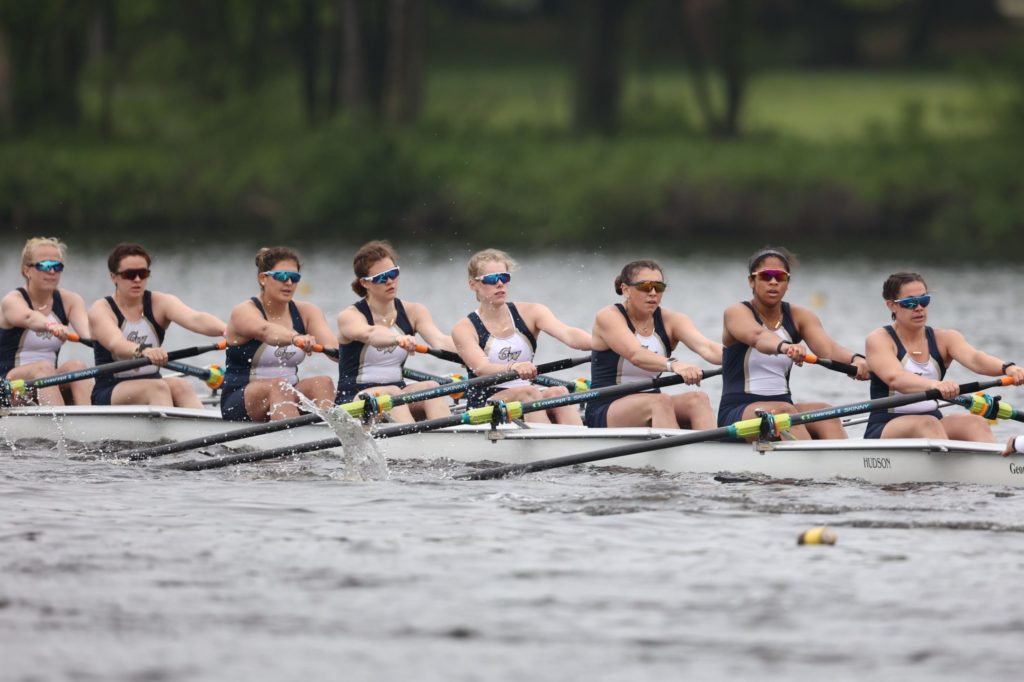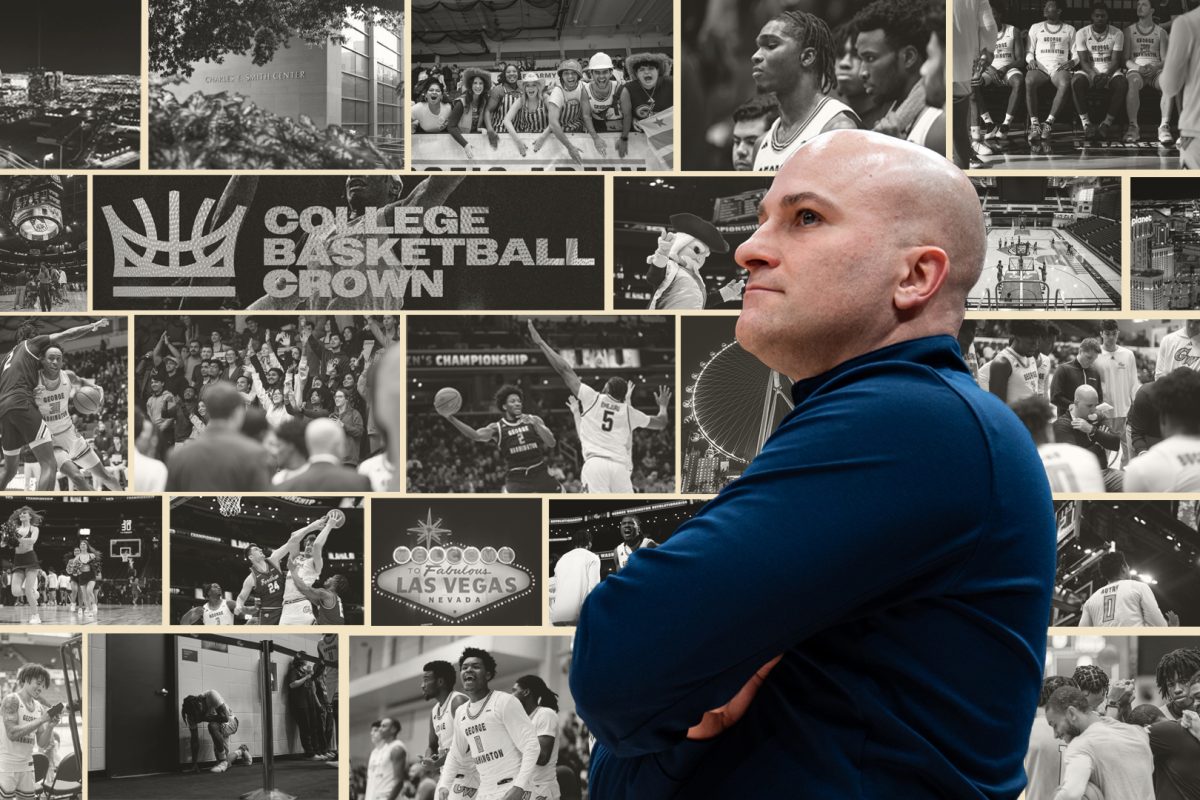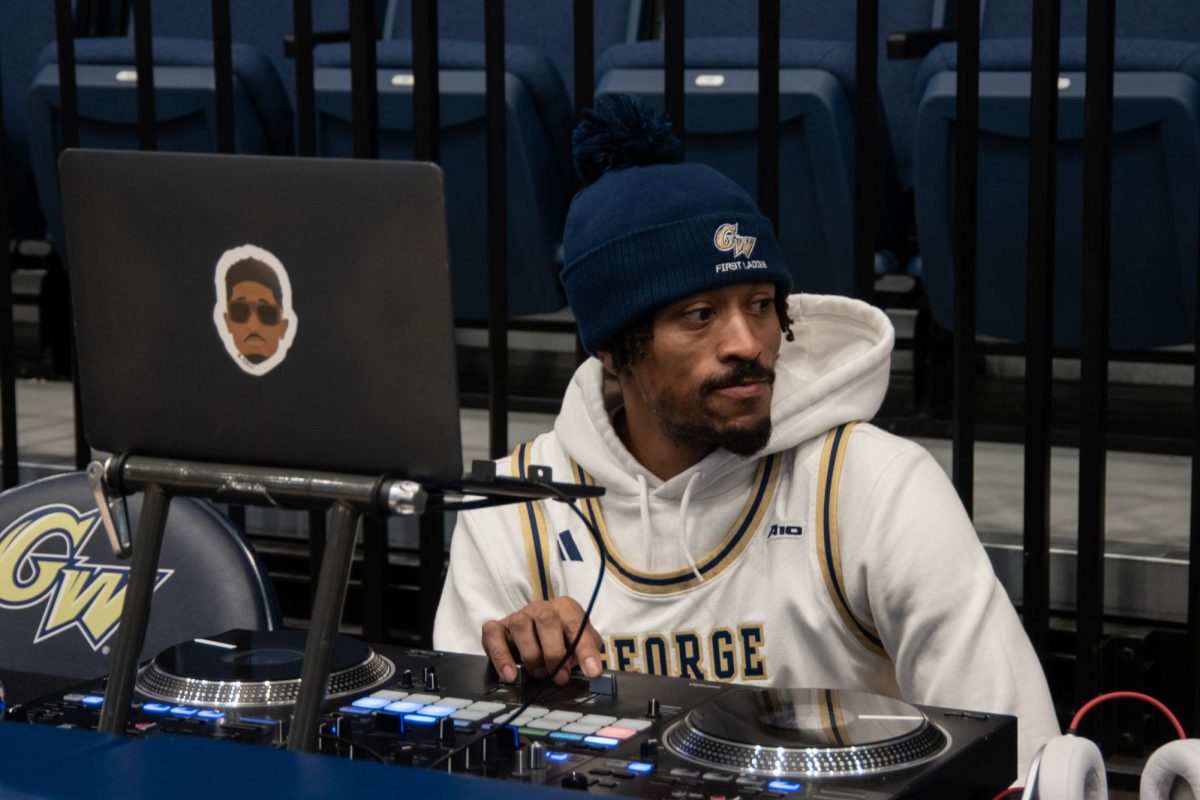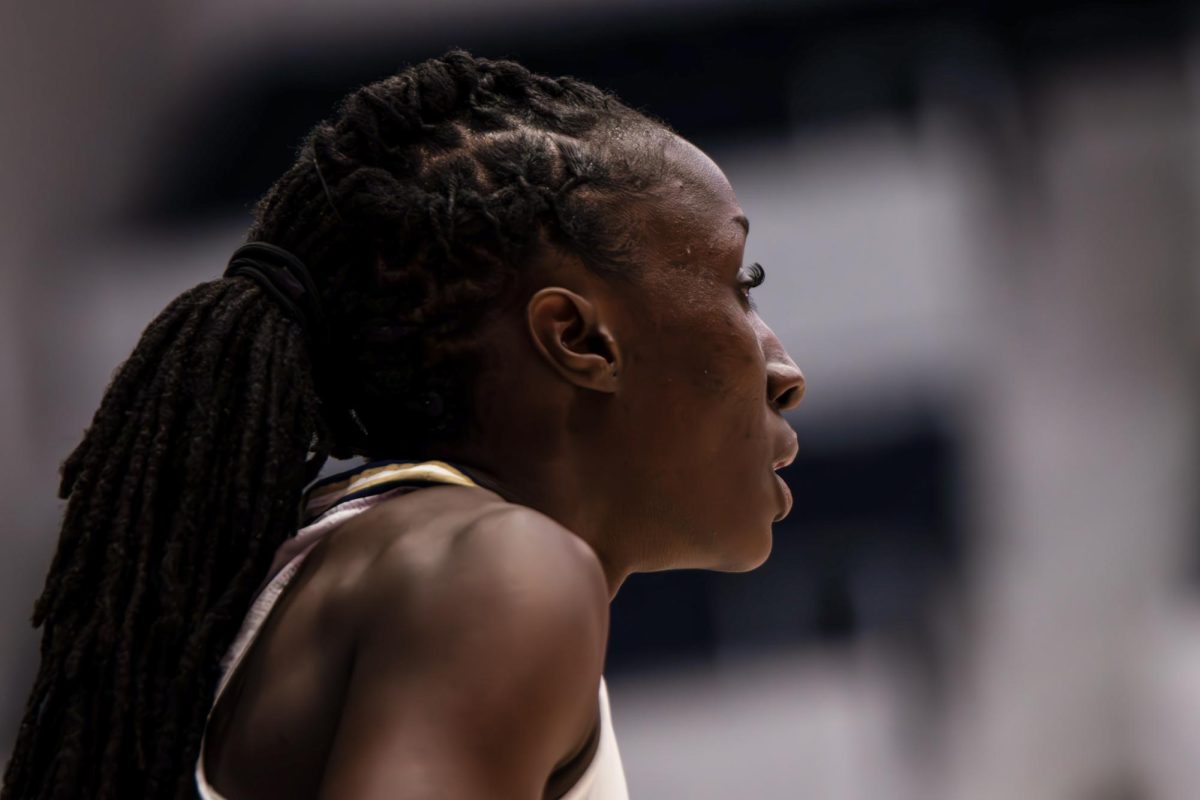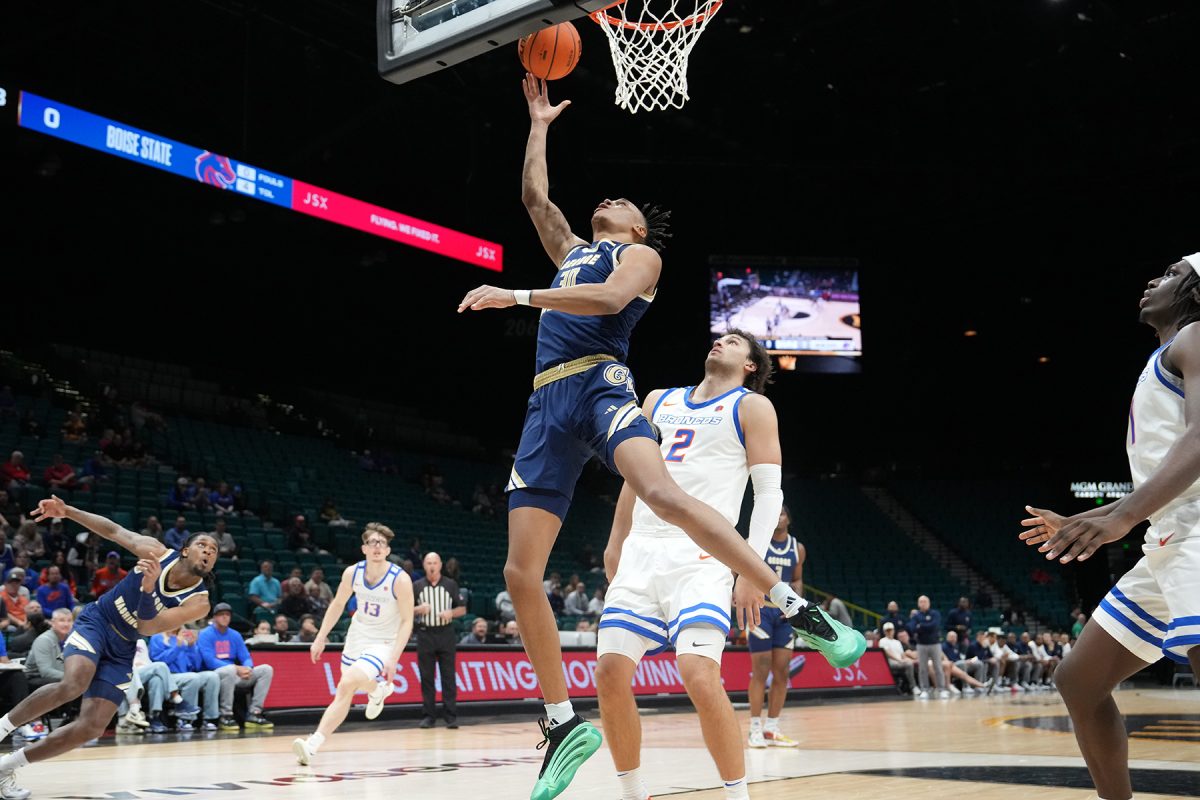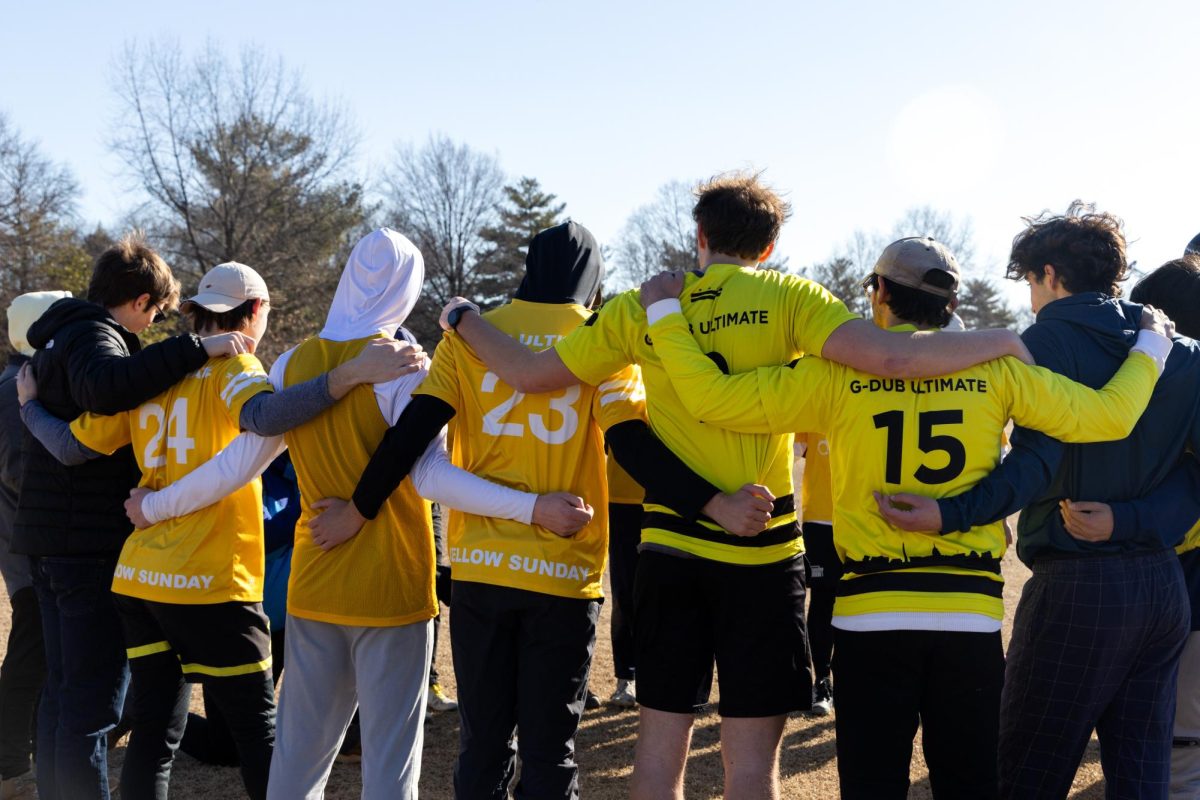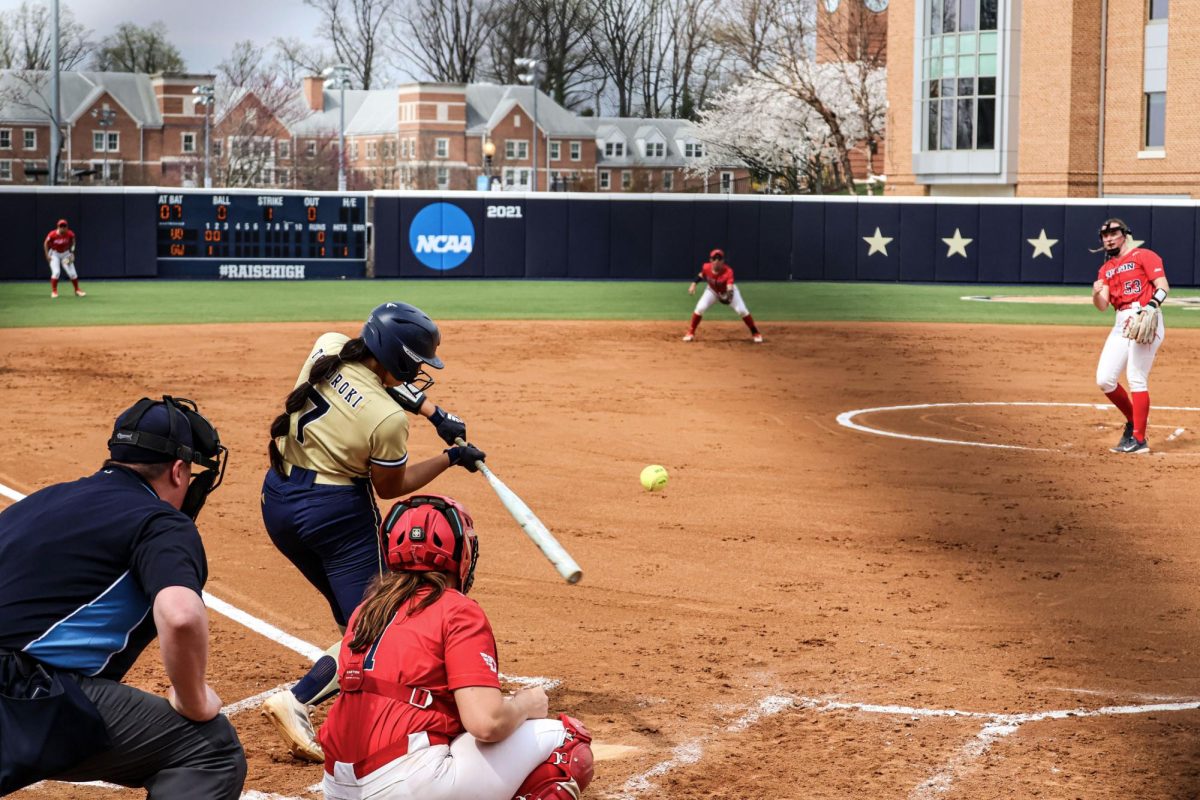Updated: Oct. 5, 2022 at 6:29 p.m.
As the only international athlete from Latin America on the women’s rowing team, competing in a sport all but void of diversity is nothing new for senior rower Elizabeth Rowland.
Rowland, who identifies as half Colombian, started her college career at Hobart and William Smith College in Geneva, New York – a predominantly white institution that left her without a sense of inclusion or understanding in the classroom and on the water. But after transferring to GW during her sophomore year and discovering a more diverse community of Hispanic students and locals, Rowland said she has settled in as a team leader and a role model for Hispanic student-athletes looking to brave the same sport while holding onto their core cultural identity.
“I felt a lot like it was a very small, similar community of people who I didn’t feel very included and I didn’t feel very understood by from a cultural perspective,” Rowland said in an interview. “I really wanted to change to get the Division 1 experience, just because I felt like rowing at the Division 3 level wasn’t really meeting the expectations I have for myself, and my goals didn’t feel very supported.”
Seventy-three percent of women’s rowing athletes identify as white at the NCAA level, leaving Hispanic athletes in the five percent minority.

Courtesy from Kevin Burke
Rowland said she savors the chance to compete at the collegiate level and hopes to inspire other students in the Hispanic community to feel empowered to do the same, especially in sports where people of color are less represented. During Hispanic Heritage Month, The GW Hatchet is profiling Hispanic athletes at GW to showcase their talent and spotlight the faces behind the stat lines.
Rowland wants to encourage Hispanic athletes to ignore the statistics if they are interested in rowing and looking to pursue their dreams in a sport that often fails to represent athletes of color. She said she wants the sport to become more accessible to the community, especially at the collegiate level, where most rowing programs recruit students without previous experience.
Before she launched into her rowing career, Rowland moved homes often throughout her younger years with her family because of her father’s work for the State Department. She said most of his posts were in Latin America in countries like Venezuela, where Rowland grew up in a “decently homogenous culture” that made her feel like she was still in Colombia.
She said she misses speaking Spanish in her everyday life, but she practices her native language during regular phone calls with her mom and listens to Hispanic music during her workouts to remind herself of home.
Rowland said one of her favorite Colombian dishes is Bandeja Paisa, traditional of the Antioquia region that has two types of Colombian sausage, ground beef, rice, red beans, fried pork rind, an arepa, a plantain, a slice of avocado and a fried egg on top. She said restaurants like Arepa Zone at Western Market help satisfy any cravings for Colombian food.
“I think Arepa Zone at Western Market does a pretty good job, I think that it’s their label of a Venezuelan restaurant,” Rowland said. “I think Venezuela and Colombia, just having historically been one country, have a lot of similarities with this is. And so it just basically feels like I’m having Colombian dishes when I go there.”
Rowland began rowing competitively in high school in Massachusetts, where she finished sixth in the single event at the Head of the Quinobequin, a 3K race on the Charles River in Boston. She also won the Head of the Riverfront, a national rowing regatta in Connecticut, in 2018.
The varsity eight boat, a three-seat race, has been a constant throughout her career at GW, where she placed second at the A-10 Championship during her sophomore year while also helping the Colonials place second overall, matching the program’s best finish. Last season, Rowland gained a spot on the All-Conference Second Team and rowed GW to a silver medal in the varsity eight boat at the A-10 Championship while once again recording a second-place finish for the program.
Rowland said she looks to continue getting faster and making the varsity eight boat as the team looks to clinch first place in the Atlantic 10 Championship for the first time in program history.
She said the team had a “pretty exciting” season outperforming pre-season rankings and rebounding from a few early losses. Rowland said although the team first struggled to iron out its physical chemistry, the Colonials’ scores on the ergometer – a device that measures physical strength and energy in the rowing motion – indicated that their physical condition positioned them to execute on the water.
Rowland said she hopes the team will take advantage of their past performance to acquire the crown.
“A team goal would be to win A-10 this year, just because we’ve come in second so many times,” Rowland said. “We keep closing that margin. It just keeps getting smaller and smaller, so hopefully this year we can flip it.”
Rowland said her Hispanic identity has shaped the smallest habits of her rowing career, including her workout music that includes popular Spanish songs, and her transition to a new country to pursue her education and athletics has allowed her to challenge herself in recent years.
“I think I kind of took a moment to be thankful for the opportunity to be a student-athlete, and I hope when people see that I am one, especially in the Hispanic community, it helps them feel empowered,” Rowland said. “Just because I feel like there’s strength in numbers, and being able to see someone doing something that you could potentially do I think is empowering – to be ‘I can do that’ versus ‘Who’s filling that space for you?’”
Luke Wienecke contributed reporting.
This post was updated to correct the following:
The Hatchet incorrectly reported that Rowland is the only international athlete on the women’s rowing team. She is the only international athlete from Latin America on the team. The Hatchet incorrectly reported that 75 percent of of women’s rowing athletes in the NCAA identify as white. The correct number is 73 percent. The Hatchet also incorrectly reported that the Colonials tied Duquesne in preseason polling. That ranking did not apply to NCAA polls for women’s rowing. We regret these errors. This post was also updated to clarify the meaning of an ergometer.


